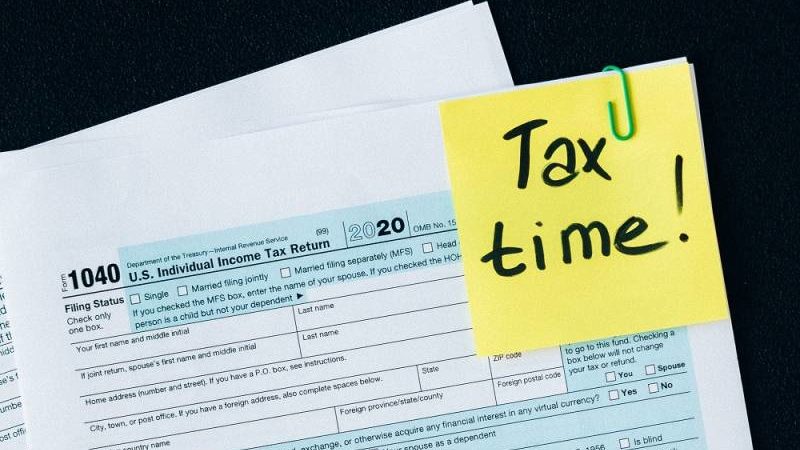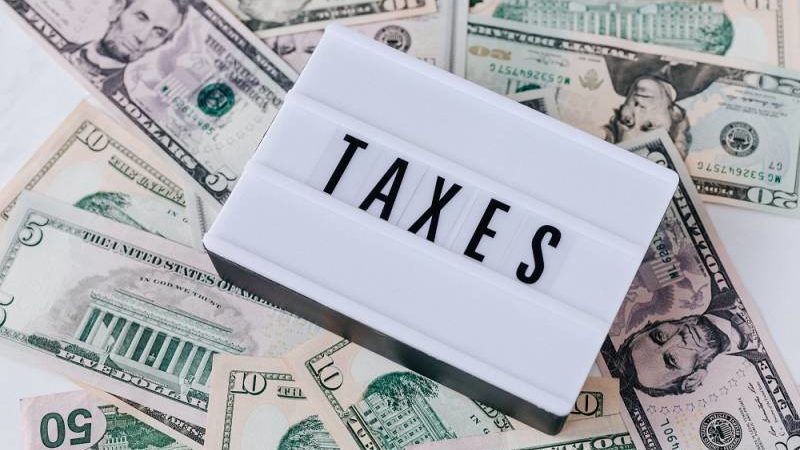
KEY POINTS
- Visa, which collaborates with Circle, BlockFi, and Coinbase, told CNBC in July that users worldwide spent more than $1 billion in bitcoin on products and services using their crypto-linked cards in the first half of 2021.
- There is indeed a discrepancy in each transaction in how much you paid for the bitcoin, which is the expense basis, and the market price at the moment you expend it.
- This discrepancy may result in capital gains income taxes in addition to other taxes, such as sales tax.
Some of the world’s largest credit card issuers are attempting to make it easier than ever to spend and earn bitcoin.
However, accountants and financial advisors warn that there is a huge catch. When you use one of these crypto cards, you are registering a “taxable event.”
“Many individuals are unaware that spending bitcoins to buy a cup of coffee or any other sort of consumer goods triggers a capital gains event,” said Shehan Chandrasekera, CPA and CoinTracker’s director of the tax scheme. IO, a virtual currencies tax software firm that assists clients in tracking their crypto across virtual wallet addresses and managing their tax liabilities.
There is always a discrepancy between how much you paid for the bitcoin (the cost basis) and the market value when you spend it. This discrepancy may result in income capital gains taxes on top of the other taxes you must pay, such as sales tax.
However, many people appear to be unconcerned with the tax burden.
Visa, which collaborates with Circle, BlockFi, and Coinbase users worldwide spent more than $1 billion in bitcoin on products and services using their crypto-linked cards in the first six months of 2021.
Meanwhile, MasterCard will create a credit card in collaboration with cryptocurrency exchange Gemini, which was co-founded by billionaires Cameron and Tyler Winklevoss.
The benefits are undeniably appealing: no yearly fees, up to 4% back in crypto incentives anytime you buy something and a simple off-ramp for your cryptocurrency.
But arguably the most important reason these tax implications aren’t bothering consumers is that they have no idea they’re accruing a tax bill every time they use their card.
“Some individuals say, ‘Oh, I’m not selling my cryptocurrency, therefore I don’t have to pay capital gains taxes.’ But it is totally incorrect,” Chandrasekera stated.
Purchasing coffee is a taxable event.

The IRS considers virtual currencies such as bitcoin to be property, which means they are taxed in the same way that stocks and real estate are.
Shivani Jain, a certified public accountant and partner at accounting, tax, and advisory company Sax LLP, says that “anytime you acquire, sell, or trade bitcoin, revenue must be recognized.”
“When you use a Coinbase card to make a payment, you are judged to have sold the bitcoin, which results in a tax event,” she explained.
The government effectively states that if you buy something with cryptocurrency, it is the same as if you liquidated your cryptocurrency, just like selling any other property. The IRS is likewise unconcerned with the size of the transaction; it is still taxed.
“There is no statutory minimum for capital gains. It is applicable even if the benefit is one penny or less, as in the case of a microtransaction,” stated Coin Center’s Neeraj Agrawal, a cryptocurrency policy think tank.
While it is doubtful that the IRS will come after you for a cent, Agrawal points out that if you make a penny’s worth of profits when you buy a coffee and fail to record that as a gain event, you are theoretically in violation of the law.
Experts told that with restrictions like these, which are difficult to fully comply with, it is almost impossible for bitcoin to function more like the currency that it was designed to be.
“When it comes to consumer acceptance of bitcoin as a means of payment, the current state of affairs is appalling,” said Chandrasekera. “It is also your responsibility to compute taxes and maintain correct records of the cost basis and sales price.”
According to Agrawal, one option is to provide a “de minimis exemption” for crypto transactions, similar to what was suggested in the House last year in the Virtual Currency Fairness Act. A de minimis exception would indicate that capital gains from crypto-based transactions would be exempt from the capital gains reporting requirement up to a certain sum, maybe up to $200.
Loopholes

There are a few ways to avoid paying taxes each time you swipe your cryptocurrency card.
Some cards, for instance, are linked to a user’s stablecoin holdings. Stablecoins are a type of cryptocurrency whose value is linked to a real-world item, such as a FIAT currency like the US dollar or a commodity like gold.
“There are no capital gains taxes since it is tied to the US dollar,” Chandrasekera stated.
While there may be daily variations of a few cents, Chandrasekera believes they are insignificant in the long run since they tend to level out.
Crypto awards can also be used to offset some of these capital gains taxes.
When you use one of these cards, you may earn up to 4% back in a cryptocurrency of your choice.
These crypto incentives have the potential to appreciate more than fiat currency prizes such as the US dollar. And, as with other card-based reward schemes, the money earned will most likely be tax-free.
“As of present, the IRS has provided no advice on how cryptocurrency incentives for spending would be taxed. However, when we look at how the IRS considers credit card incentives, we discover that they are classified as rebates or discounts and are typically not taxable,” Jain explained.
According to Jain, this indicates that in the meantime, until more IRS advice is released, it would be appropriate to approach crypto incentives in a similar manner.
According to Chandrasekera, these awards are unlikely to be taxed because they are not considered earned income to the spender but rather a reduction on the purchase price of whatever they are purchasing.
Then there’s the possibility that the transaction may result in a capital loss, which is the inverse of the capital gains requirement. According to Chandrasekera, these sorts of crypto debit card transactions would result in tax write-offs.
Again, it is the user’s responsibility to compute these losses, which can be time-consuming because they must do it for each and every crypto card transaction.
Experts have said they are skeptical whether a cryptocurrency card is worth the accounting juggling required. However, the data tends to indicate that customers are flocking to these cards for the time being.